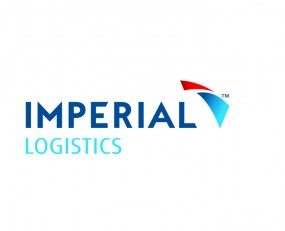
The logistics segment of Imperial Holdings continues to increase in its importance to the overall business. After selling the majority of the Regent Insurance group, and with its vehicles segment showing continued weakness, logistics operations now make up 43% of Imperial’s turnover.
The group produced revenue growth of just 1%, generating sales of ZAR*119,517m in FY17. Operating profit grew 2% to ZAR6,538m.
The logistics segment produced revenue growth of 6% for the year, aided by contributions from newly acquired Palletways (which performed better than expected) and Itumele. Logistics South Africa and Ecohealth were also said to have had good years. Total logistics revenues stood at ZAR50,665m, with its operating margin improving by 0.2 percentage points to 5.5%.
However, excluding acquisitions and disposals, logistics revenue and operating profit declined by 3% and 7% respectively. It said this was party because of the strengthening Rand by 8% against the Euro and 6% against the Dollar.
In total, foreign operations revenue for the group was virtually unchanged at ZAR49,687m. This makes up 43% of group revenues. Within the logistics segment, international revenues grew 24% and operating profit was up 11%. Strong performances from acquisitions were enough to offset lower shipping volumes in South America, lower bulk-shipping volumes in the Rhineland and customer volume losses in the supply chain solutions segment from retail, industrial and contract chemical operations.
African regions meanwhile saw a 15% decline in logistics revenues and a 3% drop in operating profit. Imperial said this was due to slowing economic growth rates & rising inflation & interest rates as well as exchange rate volatility, particularly in Nigeria and Mozambique.
Imperial’s home market of South Africa continues to be beset by structural problems. Low economic growth and business confidence appeared to have more of a downward impact on Imperial’s vehicle segment, Motus, which saw revenues and operating profit fall 3% each. Its operating profit has fallen at a real compound annual growth rate (CAGR) of -5% for the past four years.
Imperial’s logistics segment in South Africa saw increased volumes in commodities, fuel & gas operations and solid performances from Managed Logistics & Resolve. Boosts were also received from the health sciences industry and improved results in Imperial Cold logistics, which reduced its losses from FY2016. Furthermore, the acquisition of Itumele helped grow revenues by 12%.
Disposals of non-strategic business and properties during FY17 helped Imperial generated proceeds of ZAR3.0bn. This helped reduce its gearing ratio, which stood at 98% at the end of H1, to 71% at the financial year end. This falls within Imperial’s target range of 60%-80%. Its net debt to EBITDA ratio of 1.7 was in line with the previous year.
Return on equity has fallen steadily from 2.1% in 2013 to 1.3% in 2017 and worsening market conditions, both at home and abroad could continue to stifle Imperial. As a result, Imperial anticipates merely “solid” results in FY18, subject to stable currencies and South Africa retaining its current investment grade.
*ZAR14.83=€/ZAR13.60=$
Source: Transport Intelligence, August 30, 2017
Author: Andy Ralls